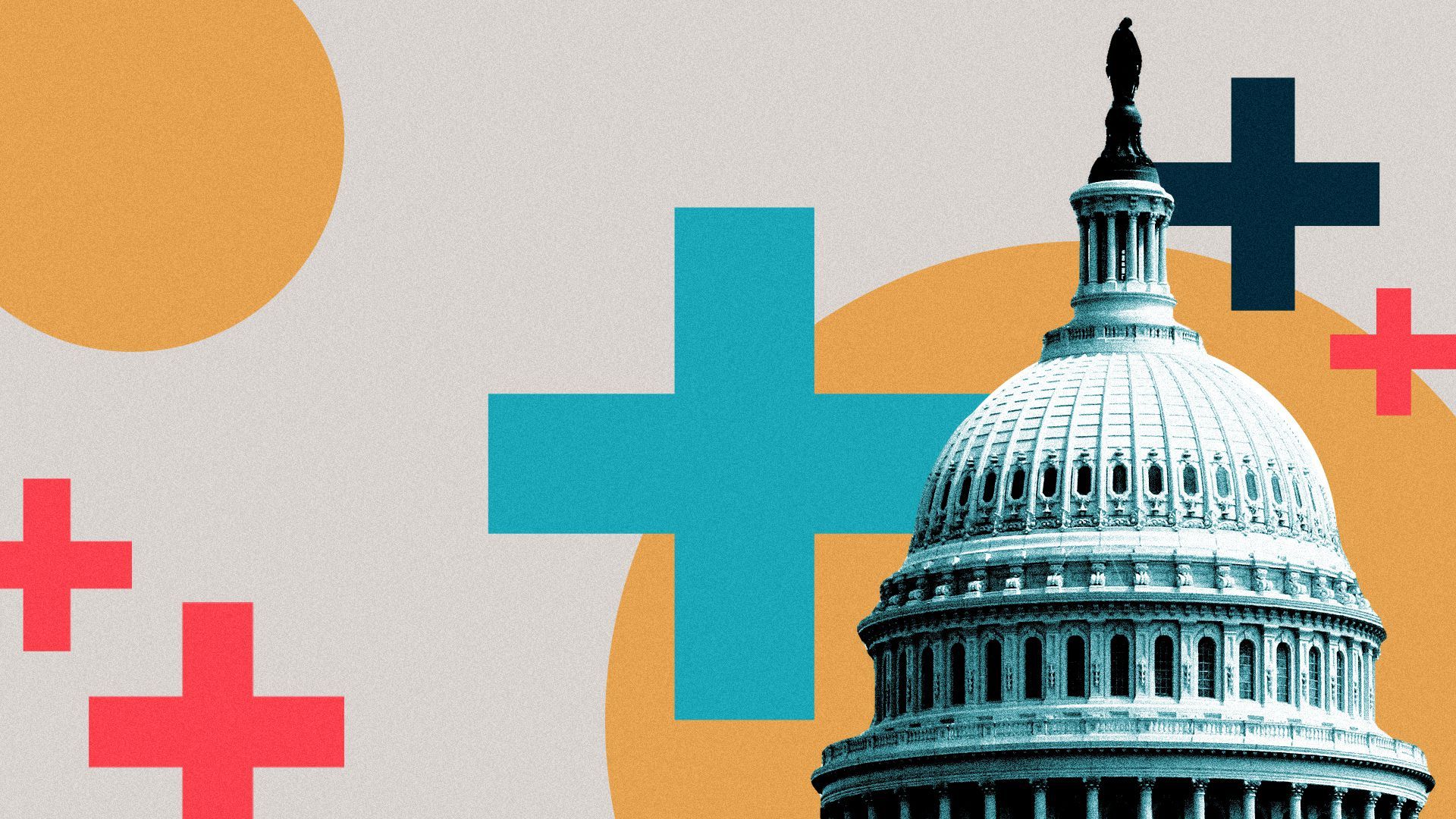
Illustration: Shoshana Gordon/Axios
Medicare Advantage’s popularity among seniors makes it hard for Congress to tweak the program — but that may be about to change.
What we're watching: Congress could pass a bipartisan bill to streamline prior authorization on the heels of reports that plans are denying necessary care for enrollees.
- If the bipartisan bill doesn't pass in the lame duck, it's likely to return in the next Congress.
- And both Democrats and Republicans voiced concerns about Medicare Advantage plans keeping their promises of quality, efficient care during an Energy & Commerce Committee hearing in June — so those questions could become fodder for legislation, too.
- Lawmakers are also raising questions about the plans' marketing tactics — and about the fact that Medicare Advantage seems to be costing the government more money rather than saving money.
- Additionally, the Medicare Hospital Insurance Trust Fund is on track to run dry in 2028. As that date gets closer, Congress will be under pressure to course-correct Medicare Advantage payment to help delay insolvency.
Our thought bubble: Lawmakers might have more success cracking down on issues like prior authorization denials than on overpayment, since it’s easier to explain to enrollees why those fixes are important to them—and harder for insurers to dispute them.
Between the lines: The private Medicare option is expected to capture half of the total Medicare market by next year, thanks to perks like zero-premium plans and extra benefits.
- Private Medicare plans are supposed to deliver care more efficiently than the government. But in reality, the government pays 4% more for enrollees in Medicare Advantage than it does for those in traditional Medicare, according to the Medicare Payment Advisory Commission.
- Part of this discrepancy is because plans get more money for documenting more enrollee diagnosis codes — meaning the sicker their enrollees appear on paper, the more they get paid.
Yes, but: A record 346 House members and 63 senators wrote to regulators in support of keeping the program financially strong earlier this year. “We are ready to protect the program from policies that would undermine this stability or the health outcomes of enrollees," the House version of the letter said.
